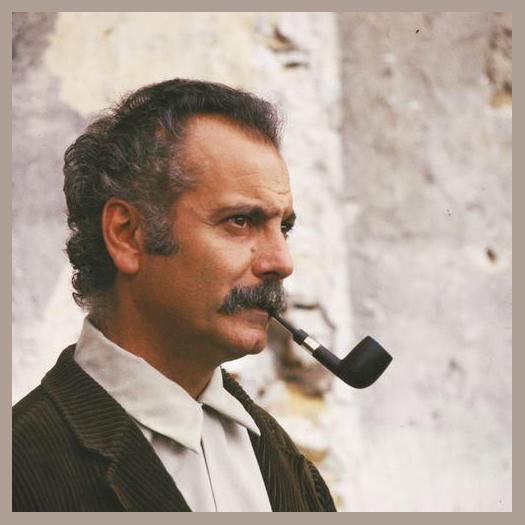 Georges Brassens
Georges Brassens
Georges Brassens: The Poet of the People
Nestled amidst the vibrant streets of Paris, a musical legend emerged, captivating audiences with his poignant lyrics and infectious melodies: Georges Brassens.
Early Life and Influences:
Born in Sète, France, in 1921, Brassens' childhood was marked by poverty and tragedy. As a young man, he immersed himself in literature, particularly the works of François Villon and Jean Cocteau. His love of language and his unwavering belief in the power of words laid the foundation for his future songwriting.
Making His Mark:
In the post-war years, Brassens found his musical calling in the bustling cafes of Paris. With his distinctive guitar and a voice that both crooned and challenged, he captivated audiences with his witty and often irreverent songs. His early compositions, such as "Le Gorille" and "La Chasse aux Papillons," quickly gained popularity and established Brassens as a rising star.
Challenges and Controversies:
While Brassens' music resonated with many, it also stirred controversy. His songs often tackled taboo subjects, such as sexuality, religion, and politics. "Supplique pour être enterré à la plage de Sète" (Plea to be Buried on the Beach of Sète) was met with resistance from the Catholic Church, while "Les Sabots d'Hélène" (Helen's Clogs) faced accusations of misogyny. However, Brassens remained steadfast in his beliefs, using his music as a platform to question authority and champion the marginalized.
Discography and Collaborations:
Over the course of his career, Brassens released over 14 studio albums, including classics such as "Chanson pour l'Auvergnat" (Song for the Auvergne Man) and "Les Copains d'abord" (Good Friends First). His collaborations with renowned musicians, including Jacques Brel and Léo Ferré, further cemented his status as a musical icon.
Members:
Throughout his career, Brassens relied on a close-knit group of collaborators. His long-time guitarist, Pierre Nicolas, provided the rhythmic backbone of his songs, while bassist Joël Favreau added warmth and depth. Together, they formed an unbreakable musical bond that elevated Brassens' compositions to new heights.
Legacy and Impact:
Georges Brassens passed away in 1981, leaving behind a rich musical legacy that continues to inspire and entertain. His songs, filled with wit, wisdom, and a profound understanding of the human condition, have become timeless classics. His music has been translated into countless languages and performed by artists worldwide, ensuring that the voice of the "poet of the people" will forever reverberate through time.
Nestled amidst the vibrant streets of Paris, a musical legend emerged, captivating audiences with his poignant lyrics and infectious melodies: Georges Brassens.
Early Life and Influences:
Born in Sète, France, in 1921, Brassens' childhood was marked by poverty and tragedy. As a young man, he immersed himself in literature, particularly the works of François Villon and Jean Cocteau. His love of language and his unwavering belief in the power of words laid the foundation for his future songwriting.
Making His Mark:
In the post-war years, Brassens found his musical calling in the bustling cafes of Paris. With his distinctive guitar and a voice that both crooned and challenged, he captivated audiences with his witty and often irreverent songs. His early compositions, such as "Le Gorille" and "La Chasse aux Papillons," quickly gained popularity and established Brassens as a rising star.
Challenges and Controversies:
While Brassens' music resonated with many, it also stirred controversy. His songs often tackled taboo subjects, such as sexuality, religion, and politics. "Supplique pour être enterré à la plage de Sète" (Plea to be Buried on the Beach of Sète) was met with resistance from the Catholic Church, while "Les Sabots d'Hélène" (Helen's Clogs) faced accusations of misogyny. However, Brassens remained steadfast in his beliefs, using his music as a platform to question authority and champion the marginalized.
Discography and Collaborations:
Over the course of his career, Brassens released over 14 studio albums, including classics such as "Chanson pour l'Auvergnat" (Song for the Auvergne Man) and "Les Copains d'abord" (Good Friends First). His collaborations with renowned musicians, including Jacques Brel and Léo Ferré, further cemented his status as a musical icon.
Members:
Throughout his career, Brassens relied on a close-knit group of collaborators. His long-time guitarist, Pierre Nicolas, provided the rhythmic backbone of his songs, while bassist Joël Favreau added warmth and depth. Together, they formed an unbreakable musical bond that elevated Brassens' compositions to new heights.
Legacy and Impact:
Georges Brassens passed away in 1981, leaving behind a rich musical legacy that continues to inspire and entertain. His songs, filled with wit, wisdom, and a profound understanding of the human condition, have become timeless classics. His music has been translated into countless languages and performed by artists worldwide, ensuring that the voice of the "poet of the people" will forever reverberate through time.